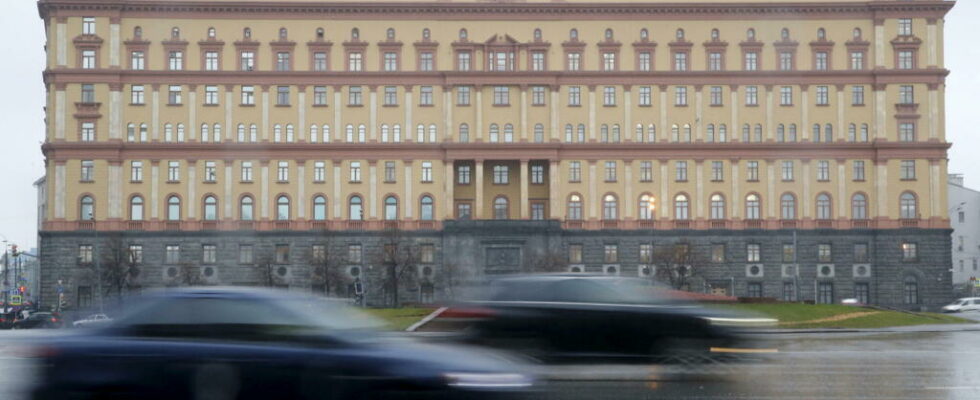A Russian-German citizen, accused of wanting to “sabotage” a railway line in Nijni Novgorod in Russia on orders from kyiv, was arrested, the Russian security services (FSB) announced on Tuesday, December 20.
2 mins
The individual, born in 2003, is accused of having “ prepared the sabotage of a section of railway track in the city of Nizhny Novgorod using an explosive device » in exchange « a promised financial reward » by Ukrainian intelligence (SBU), the FSB said in a statement.
A source close to the German Foreign Ministry told AFP that Berlin had been “ informed » of the case and endeavored to obtain consular access to the person concerned.
“ Dual nationals are treated by Russia exclusively as Russian citizens and consular access is therefore generally refused », specifies the same source, warning against the risks of arrest “ very high » in Russiaincluding for German citizens.
According to the FSB, the facts date back to November. The security services claim to have found at the accused’s home “ means of communication » attesting to messages exchanged with “ a representative » from the Ukrainian SBU.
Several other arrests
This new case comes several weeks after the arrest in the Kaliningrad region (north-west) of Nikolai Gaïduk, a German citizen born in 1967, also accused of sabotage by the Russian FSB. The German Foreign Ministry confirmed his arrest in November which “ already dates back to October “.
In the context of the Russian assault in Ukraine, several Westerners, particularly Americans, were also arrested in Russia and faced with serious charges.
Berlin is aware of at least ten cases of German nationals imprisoned in Russia, German diplomatic spokesperson Kathrin Deschauer said on November 20. Ms. Deschauer then denounced “ a climate of intimidation and fear » in Russia, where “ arbitrary arrests of foreigners can take place “.
Washington, for its part, denounces hostage-taking to obtain the release of Russians – including spies – detained abroad. On August 1, the West and Russia carried out the largest exchange of prisoners since the end of the Cold War, including American journalist Evan Gershkovich and former marine Paul Whelan, freed by Moscow.
Rumors are circulating about a new exchange of prisoners between Westerners and Russians before or just after Donald Trump’s arrival at the White House in January.
Also readLarge exchange of prisoners between Russia and the West, including journalist Evan Gershkovich
